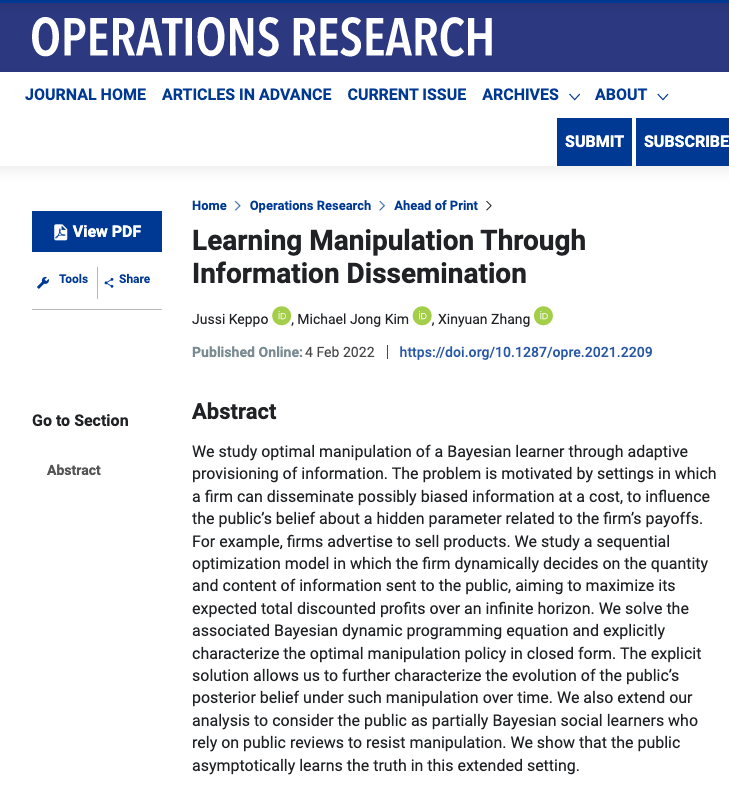We study optimal manipulation of a Bayesian learner through adaptive provisioning of information. The problem is motivated by settings in which a firm can disseminate possibly biased information at a cost, to influence the public’s belief about a hidden parameter related to the firm’s payoffs. For example, firms advertise to sell products. We study a sequential optimization model in which the firm dynamically decides on the quantity and content of information sent to the public, aiming to maximize its expected total discounted profits over an infinite horizon. We solve the associated Bayesian dynamic programming equation, and explicitly characterize the optimal manipulation policy in closed-form. The explicit solution allows us to further characterize the evolution of the public’s posterior belief under such manipulation over time. We also extend our analysis to consider the public as partially-Bayesian social learners who rely on public reviews to resist manipulation. We show that the public asymptotically learns the truth in this extended setting.


